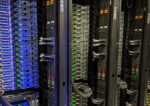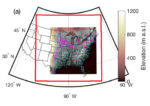This update is from Aaron Dubrow, science and technology writer, TACC. Frontera — the 9th fastest supercomputer in the world, deployed at The University of Texas at Austin’s Texas Advanced Computing Center (TACC) — has expanded thanks to a supplemental award from the National Science Foundation (NSF), which funded the system, and a substantial contribution from […]
TACC’s Frontera HPC System Expansion for ‘Urgent Computing’ – COVID-19, Hurricanes, Earthquakes
Frontera, deployed at the Texas Advanced Computing Center supercomputer and the ninth fastest HPC system in the world, will receive an expansion to support urgent computing and basic science, according to TACC. The expansion is funded by an award from the National Science Foundation (NSF) and a contribution from Dell Giving, the philanthropic arm of […]
The Dell Technologies HPC Community Interviews: Dell HPC Leader Thierry Pellegrino Talks Collaborative Inspiration and Why ‘the Whole World Is Morphing into HPC’
Thierry Pellegrino is vice president and general manager of HPC at Dell Technologies, putting him in a leadership position of a vendor whose servers are used in some of the world’s most powerful HPC clusters. In this interview, Pellegrino explains Dell’s three-pronged HPC strategy (“democratize, optimize, advance HPC and AI”). He also talks about how […]
COVID Camouflage: TACC’s Frontera Reveals Virus’s ‘Sugar Coating’
Researchers using the Frontera supercomputer at the Texas Advanced Computing Center (TACC) have uncovered the atomic makeup of the sugary shield on the coronavirus that could prove instrumental to the workings of the contagion, now spreading death, illness and economic destruction around the world. UCSD scientists have used about 2.3 million Frontera node hours for molecular dynamics simulations and modeling.
TACC’s Frontera Supports Investigation of Subatomic Protons – ‘the Origin of the Mass of Objects’
A team of researchers are using the Frontera supercomputer at the Texas Advanced Computing Center (TACC) to crack open the proton, a fundamental building block of the atomic nucleus that is used, among other ways, as a medical probe in magnetic resonance imaging. Frontera, the world’s fifth-ranked HPC system on the Top500 list and the […]
Interview: Fighting the Coronavirus with TACC Supercomputers
In this video from the Stanford HPC Conference, Dan Stanzione from the Texas Advanced Computing Center describes how their powerful supercomputers are helping to fight the coronavirus pandemic. “In times of global need like this, it’s important not only that we bring all of our resources to bear, but that we do so in the most innovative ways possible,” said TACC Executive Director Dan Stanzione. “We’ve pivoted many of our resources towards crucial research in the fight against COVID-19, but supporting the new AI methodologies in this project gives us the chance to use those resources even more effectively.”
TACC Powers Galaxy Bioinformatics Platform for COVID-19 Analysis
Researchers are using TACC supercomputers to power the Galaxy Bioinformatics Platform for COVID-19 analysis. More than 30,000 biomedical researchers run approximately 500,000 computing jobs a month on the platform. “Since 2013, TACC has powered the data analyses for a large percentage of Galaxy users, allowing researchers to quickly and seamlessly solve tough problems in cases where their personal computer or campus cluster is not sufficient.”
NSF awards compute time on Frontera Supercomputer for 49 projects
The most powerful supercomputer in the world for academic research has established its mission for the coming year. “The NSF has approved allocations of supercomputing time on Frontera to 49 science projects for 2020-2021. Time on the TACC supercomputer is awarded based on a project’s need for very large scale computing to make science and engineering discoveries, and the ability to efficiently use a supercomputer on the scale of Frontera.”
Supercomputing the Expansion of Wind Power
Researchers are using TACC supercomputers to map out a path towards growing wind power as an energy source in the United States. “This research is the first detailed study designed to develop scenarios for how wind energy can expand from the current levels of seven percent of U.S. electricity supply to achieve the 20 percent by 2030 goal outlined by the U.S. Department of Energy National Renewable Energy Laboratory (NREL) in 2014.”
Supercomputing the Spread of Contagions on Airplanes
Researchers are using supercomputers to model how contagions can spread onboard aircraft. Using Frontera’s GPU subsystem, the researchers were able to get the computation time down to 1.5 minutes. “Using the GPUs turned out to be a fortunate choice because we were able to deploy these simulations in the COVID-19 emergency. The GPUs on Frontera are a means of generating answers fast.”












